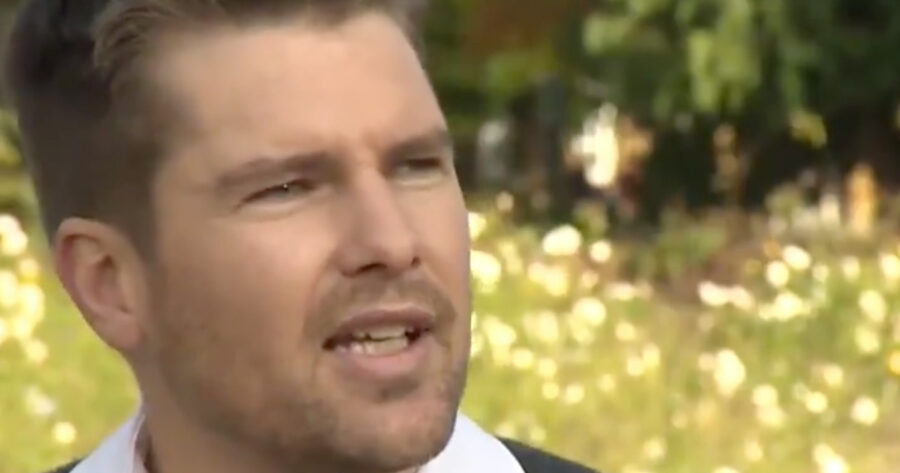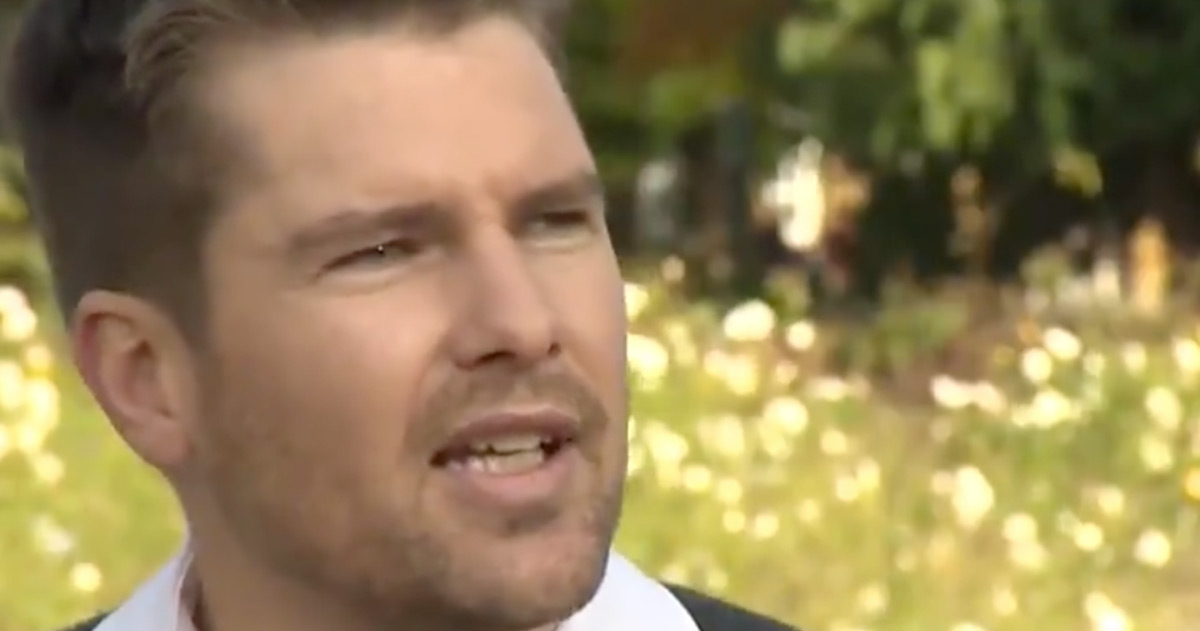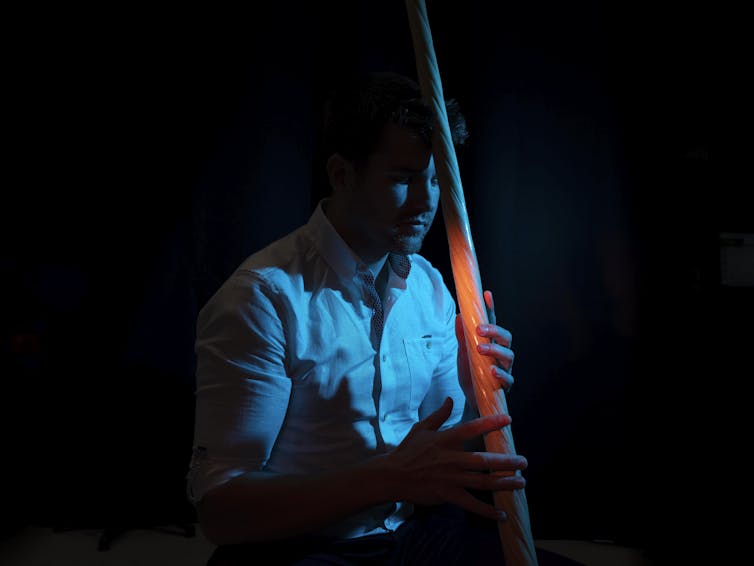
WATCH South African London Bridge Hero Still Backs Rehabilitation A Year Later
Tomorrow, Sunday 29 November, it will be exactly a year since South African expat Darryn Frost’s life was turned upside down and he became known worldwide as the ‘narwhal tusk hero’ after bravely stabbing the London Bridge attacker with the tusk and holding him down. In the UK this week, there was a “huge reaction” […]

Tomorrow, Sunday 29 November, it will be exactly a year since South African expat Darryn Frost’s life was turned upside down and he became known worldwide as the ‘narwhal tusk hero’ after bravely stabbing the London Bridge attacker with the tusk and holding him down. In the UK this week, there was a “huge reaction” to Darryn’s interview with BBC Breakfast where he recounts what happened and how it has forever changed his life… (Plus Darryn explains below, in an interview with The Conversation, why he still backs rehabilitation.)
"I still re-live the trauma"
In an exclusive interview with #BBCBreakfast, Darryn Frost, the man who stabbed the London Bridge attacker with a narwhal tusk last year, talks of how he's still living with the impact of the day.https://t.co/XAI01FQaKL pic.twitter.com/M20aC0zIpb— BBC Breakfast (@BBCBreakfast) November 23, 2020
‘Narwhal tusk hero’ still backs rehabilitation, a year on from London Bridge attacks.
November 29 2019 was meant to be a day of celebration for those involved in the Learning Together programme – an initiative which brings people in prisons together with people from higher education institutions. There are many inspiring stories about prisoners who changed their lives after participating in programmes of this kind. But such achievements are often easily overlooked and they have, to some extent, been in this particular case. (Watch South African hero Darryn Frost talk for the first time about the events.)
Now, when people think about that day, it is because one of the attendees, 28-year-old Usman Khan, killed two people.
But I’ve interviewed several of the people there that day, and they continue to insist on the importance of rehabilitation initiatives. My research with people affected by the events of November 29 and recent terror attacks in the UK and abroad show that despite – or because of – their trauma, many are determined to make the world a better place.
The events of November 29
The Learning Together event at Fishmonger’s Hall in London took a dramatic turn during a coffee break that day. Khan went to the toilets and taped two large knives to his hands. He stabbed Jack Merritt, a 25-year-old Learning Together employee, as he entered the bathroom. Khan then stabbed several other people, including Saskia Jones, a 23-year-old Learning Together volunteer who died from her injuries.
While some attendees provided first aid to the victims, others tried to stop Khan using chairs, fire extinguishers and, famously, a narwhal tusk. The 38-year-old Ministry of Justice employee Darryn Frost, who became known in the media as the “narwhal tusk hero”, was one of the first to confront the attacker. Frost and three others followed Khan outside and managed to tackle and disarm him on London Bridge.
When police arrived, they found Khan on the ground. Frost was on top of him, refusing to move because Khan was wearing a fake suicide vest and Frost feared he would detonate a bomb. Frost later told me another reason was that he wanted Khan to face justice rather than being shot by police. After dragging Frost off, police officers shot and killed Khan. Despite efforts to save them, Jones and Merritt died. Several other stabbing victims had to be treated in hospital.
Terror and politics
Khan had been jailed in 2012 for plotting “Al-Qaida inspired” bombings in the UK. After an appeal in 2013, his indeterminate sentence was changed to a fixed 16-year sentence. He therefore qualified for automatic early release in 2018. At the time of the attack, he was formally under MI5 investigation and monitoring, but that clearly didn’t stop him.
Prime Minister Boris Johnson blamed an early release scheme introduced by a former Labour government for the attack and vowed to scrap the law. In response, Jack’s father Dave Merritt urged Johnson to stop politicising his son’s death. Indeed, while longer prison sentences may win votes, expert analyses suggest that they won’t stop attacks.
In January 2020, two inmates at HMP Whitemoor stabbed five people in an attack classed as a terrorist incident. One of the perpetrators was already facing a long prison sentence for terror offences and reportedly used his time behind bars to radicalise others.
My research suggests that many people who were directly affected by such attacks feel that it takes a lot more than sentencing reforms to prevent future violence.
Despite the extreme nature of their encounter, Frost told me he was left with the strong impression that Khan “was probably very depressed” and “a man who feels deeply aggrieved about something”. He said that he held onto Khan’s hands that day even after being told to move partly, because he wanted to protect the people around him from Khan and partly because he wanted to protect Khan from the people around him.
Remembering and moving forward
The people affected by the London Bridge attack rapidly found themselves at the centre of a heated debate about rehabilitation and sentencing reforms. Dave Merritt felt he owed it to his son to intervene in this debate. He wrote that Jack “would be seething at his death, and his life, being used to perpetuate an agenda of hate that he gave his everything fighting against”.
Merritt’s family and friends instead want to use the anniversary of his death to encourage us all to use creative means to express how we feel about this day and to share pictures using the hashtag #creatingwithJackMerritt.
Jack Merritt and Saskia Jones were not naïve. Jones had years of experience working with prisoners and rape victims. Those who knew her describe her as somebody who “rolled up her sleeves and did something about it”. She was about to join the police force. Merritt worked with convicted murderers and other prisoners who had committed serious offences. He knew their backgrounds but believed in the transformative power of rehabilitation.

Indeed, the two other people people who helped tackle Khan – Steve Gallant and John Crilly – were themselves convicted murderers. Are they heroes? Probably not in the eyes of the families of their victims. But they also risked their lives to protect others that day. Frost told me he thought Gallant’s actions on the day were “as heroic if not more heroic” than his own, because Gallant was on day release and knew that his actions could affect his sentence.
Frost says he felt uneasy about being labelled a hero for another reason: “everyone sees medals and the glory of it”, but “there was no glory in the episodes of that day”. Like many survivors of violent attacks, Frost suffers from PTSD and said he had started to “shun social environments even before COVID”.
With this in mind, it’s even more remarkable that he and other victims are trying to continue Jack Merritt’s fight. Currently, Frost is drumming up support for a new rehabilitation programme that seeks to help low- and medium-risk offenders with work and resettlement. It is called Own-Merrit. Frost wants to make Gallant co-partner in this project and campaigns for him to be released early. He says: “I don’t want to only promote rehabilitation, I want to live it.”![]()
Katharina Karcher, Senior Lecturer with a research focus on political violence, University of Birmingham
This article is republished from The Conversation under a Creative Commons license. Read the original article.
